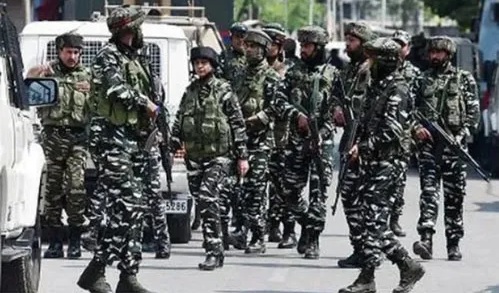- Advertisement -
ISLAMABAD, Aug 20 (APP): House raids and cordon and search operations (CASOs) by Indian troops have become routine in the militarized Indian illegally occupied Jammu and Kashmir (IIOJK).
The political experts and analysts said this in their interviews and statements in Srinagar.
They said, “Indian forces and agencies like National Investigation Agency (NIA) and State Investigation Agency (SIA) use house raids and CASOs as a pretext to terrorize, arrest and silence the Kashmiris,” KMS reported.
“The Indian forces even don’t spare children and women during the dreaded search and house raid operations in IIOJK, which is already under military and police siege since 2019,” they lamented.
The political experts and analysts said, “Indian troops have stepped up the search operations and house raids in the territory since the abrogation of Article 370 in August 2019.”
They said, “The violent operations by Indian forces in uniform and civic dresses have further worsened the already grim situation in Jammu and Kashmir.”
They deplored the arrest of innocent youth during crackdowns and house raids.
The puppet Bharatiya Janata Party (BJP) regime had broken all records of committing brutalities on the people in the occupied territory, they added.
They said that 790 Kashmiris had been martyred and thousands, including top Hurriyet leadership even women and religious leaders, detained in jails and police stations since 5 August 2019 in IIOJK when the Indian Hindutva government repealed Kashmir’s special status and imposed a military siege.
The political experts and analysts said, “Modi regime’s militaristic tactics in the occupied territory is a challenge to the global peace and freedom-loving community and the world must wake up to rescue the beleaguered Kashmiris from Indian atrocities.”
“The International community, mostly the United Nations, is duty-bound to support the Kashmiris in breaking the shackles of Indian slavery of military occupation,” they maintained.

